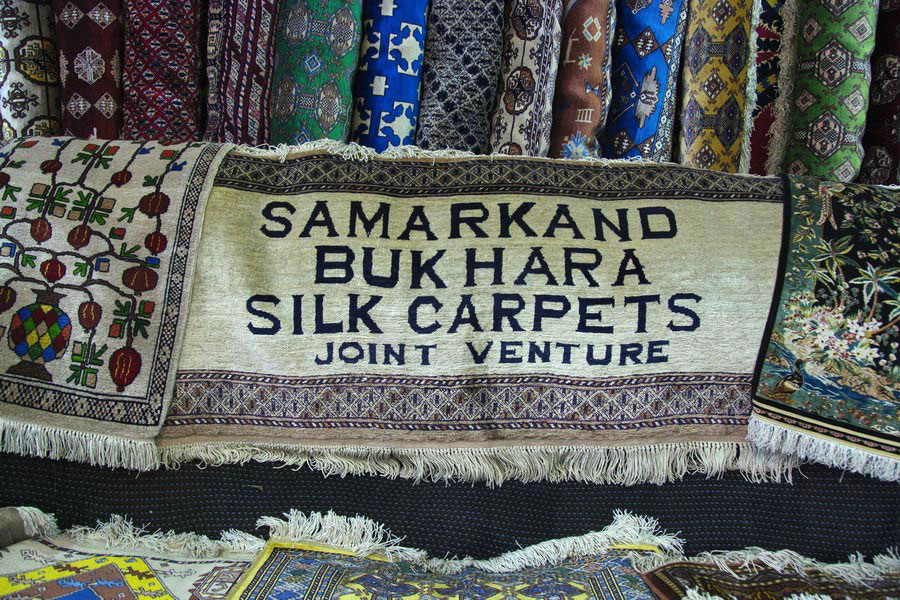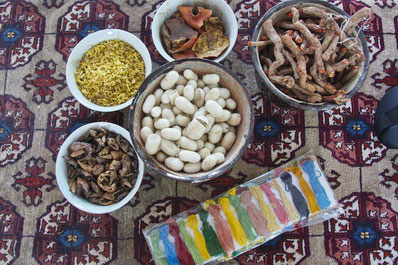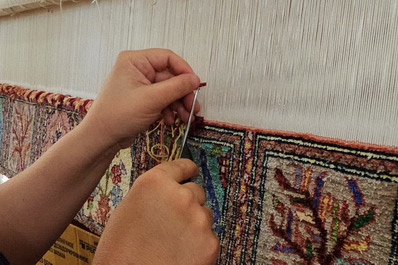Silk Carpet Factory, Samarkand

The Hudjum Factory in Samarkand is a unique production facility where carpets are meticulously handcrafted from the finest silk threads using ancient techniques. This factory is owned by the Badghisi family, a lineage of hereditary weavers. Leading the family business is Haji Mohammed Ewaz Badghisi, a master weaver and exceptional manager who has successfully organized the production of original carpets, each one a true work of art.
The most favored motifs in the creation of these silk carpets are inspired by the plant world: pomegranate fruits, vine stems, and floral patterns. Additionally, intricate geometric designs are often repeated, seamlessly blending into a cohesive fabric. One of the factory's most remarkable works is a silk carpet depicting a portrait of Sharbat Gula, mirroring the famous photograph of the young Afghan girl whose piercing gaze captivated the world. This masterpiece is a testament to the high level of craftsmanship and dedication that the Samarkand weavers pour into their labor. Visitors to the factory can also commission custom-made carpets based on any image. However, such unique creations come with a hefty price tag, as there will be no other carpet like it anywhere in the world.
The factory boasts a full production cycle, from processing fine silk threads—produced by the mulberry silkworm caterpillar—to proudly showcasing the finest carpets crafted recently. The factory relies exclusively on natural dyes, using ingredients like onion skins, walnut shells, pomegranate peels, and other plants to achieve their vibrant colors and hues.
Visitors to the Hudjum Factory can observe every stage of silk processing and witness the skillful craftsmanship of hardworking women who spend several hours a day at the loom. It typically takes each weaver a year to a year and a half to complete a single carpet, given the intricate patterns and occasionally entire images they weave. To create just one square centimeter of fabric, a weaver must tie at least 150 knots. To ensure the work proceeds as smoothly as possible, the factory strictly adheres to a schedule of work and rest, providing regular breaks. The factory also offers employment opportunities to young mothers and women with disabilities, allowing them to contribute to the creation of silk products from home, with the factory supplying the necessary materials.
Though the official name of the Badghisi family's enterprise is Samarkand-Bukhara Silk Carpets, it is commonly known as the Hudjum Factory, named after the street where it is located.



